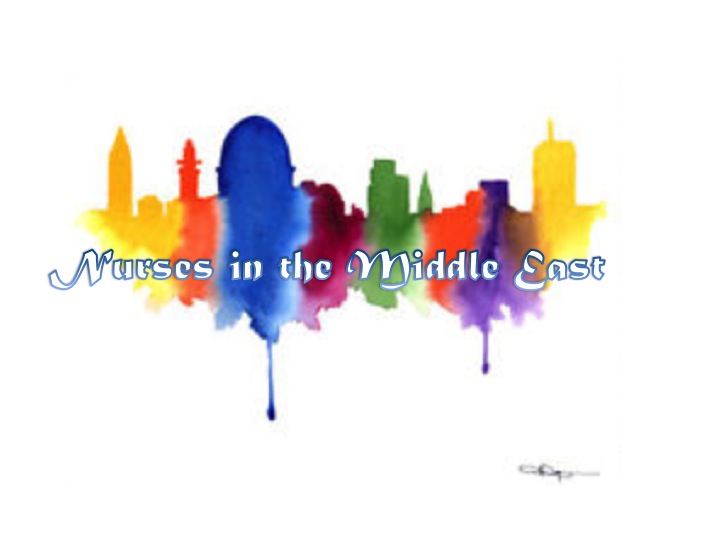As the title suggests, I am not a nurse. Nor am I Israeli, Palestinian, or Middle Eastern. Rather, I am an US citizen, studying abroad this year in Jerusalem. I am researching for my thesis, which concerns the relationship between peace building, justice, and nursing in Jerusalem (East and West.)
However, my knowledge of this organization spans nearly three years. After being hospitalized in a Jerusalem hospital and witnessing nurses as healthcare diplomats for myself, a nurse that I had befriended told me of a small, covert group of Palestinian and Israeli nurses coming together and speaking about patient care. "By speaking of care," this nurse told me, "we open the door to seek healthier, more peaceful communities."
I didn't imagine then that I would be fortunate enough to intern for this dedicated organization, nor that I would learn so much about how caring leads to greater understanding of other.
I recently attended the annual international "Middle Eastern Conference on Nursing and Caring" in Aqaba (February 2016, mark your calendars!) After months of planning, nurses representing 12 nationalities came together to discuss "caring in crisis," this year's theme. As a student in a sociology and anthropology driven field, I constantly observed the interactions between people. Below is what I found:
1. In the beginning of the conference, the opening ceremony the night before presentations began, mingling was limited to people with whom you shared cultural identity; nationality, religion, religiosity, and so on. However, everyone made an effort to speak to at least one other person from outside their cultural comfort zone.
2. Halfway through the first day of the conference people started the work of real communication. During the breaks, most people would change seats to sit next to people that interested them-- from outside their cultural groups. Deeper conversations about experience and narrative could be heard between groups of two and three people.
3. Presentations provided a baseline framework for more personal conversations. For example, presentations about nurse-patient manipulation led to nurses swapping stories; research on bettering palliative care for the family, patient, and nurse, led to intense group-wide discussions on end of life care in various countries; and a personal case study of a community healthcare nurse defying doctors advice and saving the wellbeing of a toddler inspired everyone- and made us ask ourselves and each other how we can be better community health workers.
4.During a position paper writing session, nurses were making connections between just how much they had in common-- especially in the social side of medicine. Stigmas about being a nurse in the Middle East were often shared, as were the experiences of being a woman.
5. Conversations continued until late in the evening in the hotel lobby.
6. A moment of tension about the use of the word "peace" in the Western (American) construct was given space and respect, and genuine emotion was expressed. Because it was kept in a respectful tone, later, more intimate conversations on the subject happened between smaller groups.
7. After the conference ended, many stayed to continue speaking. A friend of mine, Israeli, and myself spent hours speaking with two nurses from Iran about hospital culture, for example, and saw many groups of people from the conference doing the same.
8. What I have found most impressive is the continuity of communication after leaving Aqaba. Emails exchanged on our group email and personal notes to each other have been consistent for the last month. Talk of collaboration and "seeing each other next year" has already filled the screen time and time again.
The experience of this conference changes the perception of "Other." While only time will tell if this change is perception will build more peaceful and compassionate communities, only time will tell. But I am sure that it has created more understanding and tolerant nurses and healthcare professionals.
Margaret Mead once wrote "Never doubt that a small group of thoughtful, committed citizens can change the world; indeed, it's the only thing that ever has."
This organization is that small group- and I have no doubt that together, we will change the world. Through our annual conferences, nursing exchanges, and network, we will stand together to create healthy communities which do not simply lack illness, but can achieve positive wellbeing in the absence of conflict, war, and politically-induced stress.
My worldview has been changed by the commitment of these nurses- and I am forever grateful.
In Solidarity,
Jordan R. Hannink
Nurses in the Middle East, Intern
Wellesley College 2016

